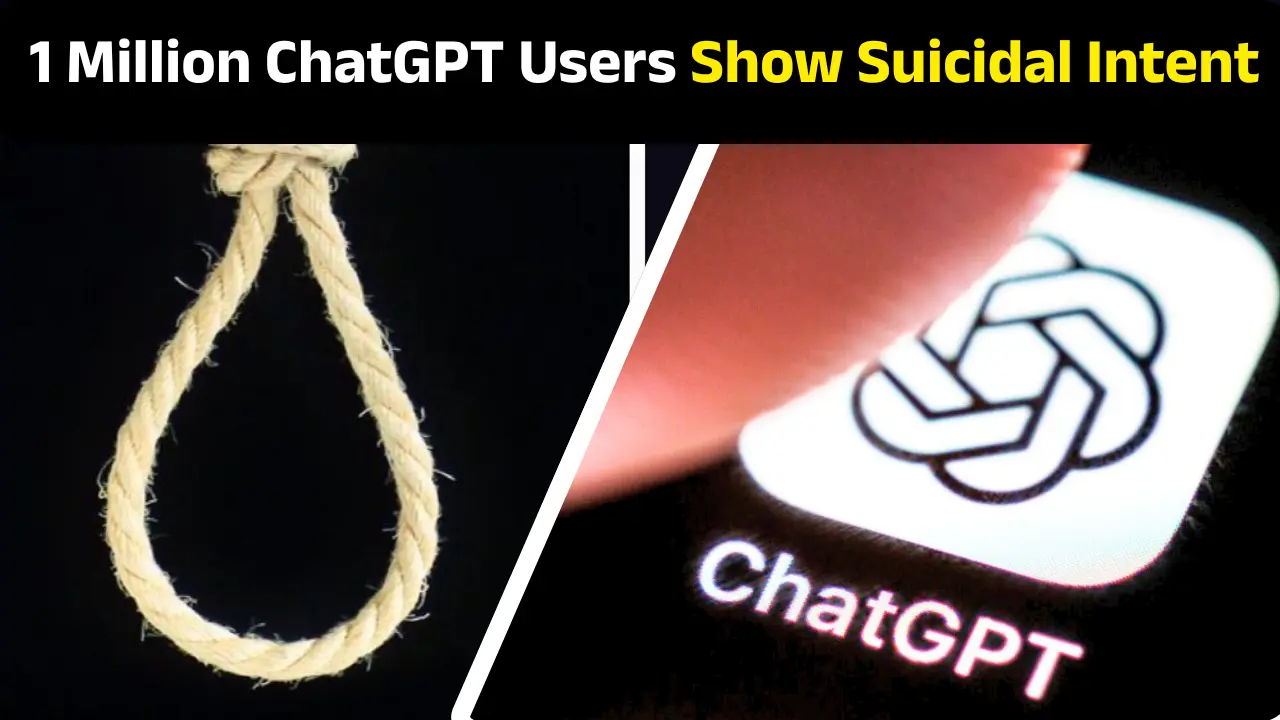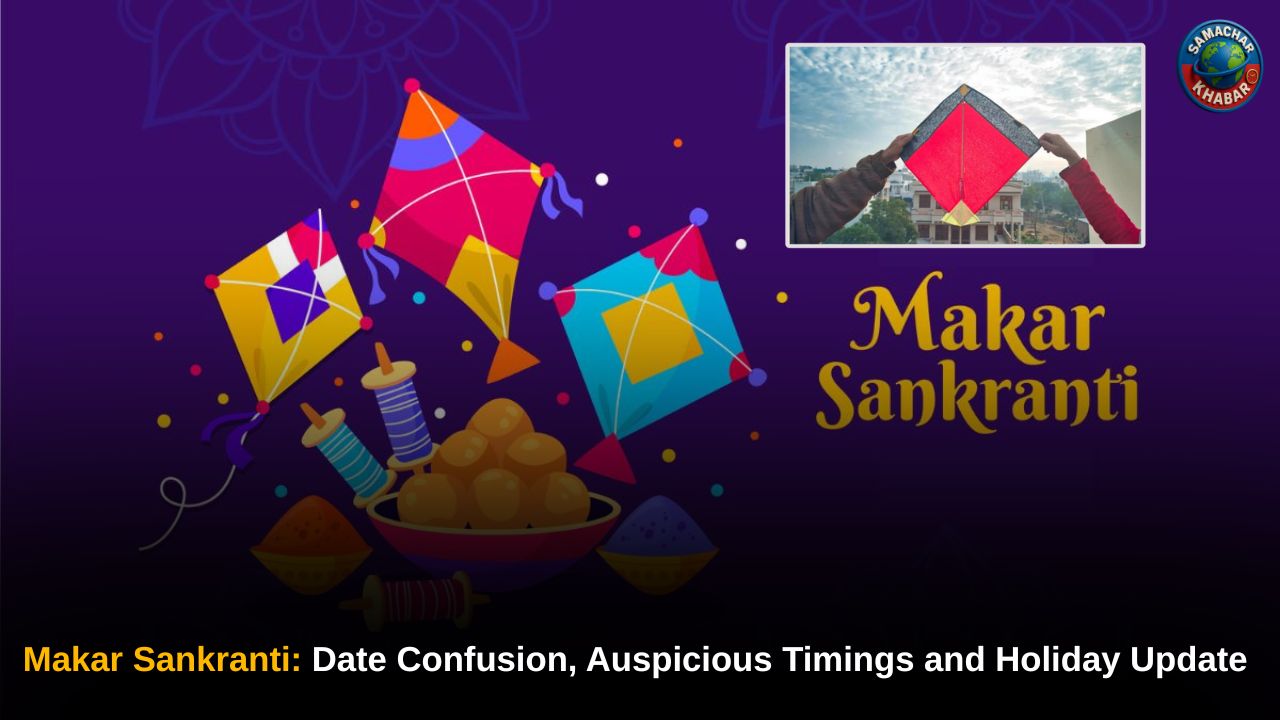In a revelation that has sent shockwaves through the tech and mental health community, OpenAI has disclosed alarming figures showing that millions of ChatGPT users are engaging in emotionally dark or suicidal conversations every week. The company’s latest report estimates that over one million users weekly express explicit suicidal intent, while thousands more display signs of psychosis, mania, or severe emotional distress.
The disclosure comes amid growing public scrutiny, legal battles, and questions over how deeply humans are relying on artificial intelligence for emotional support.
Key Insights: OpenAI’s Mental Health Data on ChatGPT Users
- Over one million users weekly express suicidal thoughts or planning through ChatGPT.
- Around 0.07% of the 800 million weekly active users show signs of psychosis or mania.
- 170+ mental health experts across 60 countries helped train GPT-5 to manage sensitive topics.
- GPT-5 shows 42% fewer problematic responses than GPT-4o, according to OpenAI’s internal tests.
- The company faces lawsuits, including the case of a 16-year-old boy’s suicide allegedly linked to ChatGPT.
- FTC investigations and expert warnings have intensified scrutiny over AI’s role in mental health care.
Millions Turning to ChatGPT for Emotional Help
OpenAI’s latest report acknowledges that millions of users are using ChatGPT to discuss mental health struggles, often sharing personal stories of depression, anxiety, and loneliness. The company revealed that nearly 0.15% of users each week have conversations indicating potential suicidal planning. With 800 million weekly users, this figure translates to over one million individuals seeking help or expressing distress through the AI chatbot.
Experts warn that while the number seems small in percentage, the scale is massive in human terms. Dr. Jason Nagata from the University of California, San Francisco, said, “Even though 0.07% sounds like a small percentage, at a population level with hundreds of millions of users, that actually can be quite a few people.”
OpenAI’s Safety Measures and the GPT-5 Overhaul
To tackle the rising wave of emotional dependence, OpenAI claims to have built a global network of 170+ psychiatrists, psychologists, and primary care physicians from more than 60 countries. These experts reviewed over 1,800 conversations involving serious mental health scenarios and helped train GPT-5 to respond more safely and empathetically.
The company stated that its new automated evaluations rated GPT-5 at 91% compliance with desired safety behaviors, up from 77% in the earlier version. The model now provides crisis hotline suggestions, reminders for users to take breaks, and smoother handoffs to safer chat modes when conversations become emotionally intense.
Legal Scrutiny and Emotional Attachments to AI
The data release comes as OpenAI faces increasing legal and ethical challenges. In one high-profile case, the parents of 16-year-old Adam Raine in California sued OpenAI, alleging that ChatGPT’s responses encouraged their son’s suicide in April. Another tragic incident in Greenwich, Connecticut, involved a murder-suicide in which the suspect’s conversations with ChatGPT appeared to reinforce delusional thoughts.
Also Read: AI Revolution in India: OpenAI Unlocks Free Premium Access to ChatGPT Go for One Year
Experts say that such events highlight a troubling phenomenon, emotional attachment to AI. Many users reportedly view ChatGPT as a friend, confidant, or therapist, blurring the line between machine and human empathy. Professor Robin Feldman from the University of California’s AI Law & Innovation Institute noted, “AI can create a powerful illusion of reality. A person at mental risk may not be able to recognize it or heed warnings.”
How GPT-5 Aims to Prevent AI-Driven Psychological Harm
OpenAI insists that GPT-5 represents its most safety-conscious model yet. The company reports that the latest version generates 42% fewer harmful or misleading responses than GPT-4o, showing significant improvement in emotionally charged dialogues.
It also introduced a system to reroute sensitive chats to safer models by automatically opening new sessions. The firm says it will continue to “advance both its taxonomies and the technical systems” to strengthen the model’s ability to identify emotional distress and guide users toward professional help rather than emotional dependence.
Wider Debate: Can AI Really Handle Mental Health?
While OpenAI’s transparency has been appreciated, the revelations reignited debates over AI’s ethical boundaries. Mental health advocates caution that AI cannot replace genuine human care. They warn that while chatbots can temporarily comfort lonely users, they lack the ability to understand real human pain or context.
Critics argue that companies are entering dangerous territory by positioning AI as an emotional support system. The concern is not just about data privacy but also about psychological influence and dependency, especially among teenagers and vulnerable adults who may turn to AI instead of real-world help.
Humanity and AI: Walking a Fine Line
The findings underline a growing global reality, people are looking to technology not just for answers but for emotional connection. While OpenAI continues refining GPT-5’s empathetic responses and building safety nets, experts agree that human oversight remains crucial.
Mental health remains a deeply human domain. Technology can assist, but it cannot replace empathy, understanding, or professional guidance. OpenAI’s own statement puts it best: “Mental health symptoms and emotional distress are universally present in human societies, and an increasing user base means that some portion of ChatGPT conversations will include these situations.”
Human Life : A Precious Chance to Attain God, as Revealed by Tatvdarshi Saint Rampal Ji Maharaj Ji
In the divine knowledge of Tatvdarshi Saint Rampal Ji Maharaj Ji, it is beautifully explained that human life is the rarest and most valuable blessing bestowed by the Supreme God. Even deities yearn for it, because only in this form can one realize the Almighty and attain complete salvation. Those who think of ending their lives commit a serious sin.
By surrendering to a Tatvdarshi Saint, sins gradually diminish, virtues grow, and one attains peace, purpose, and divine understanding. Today, Tatvdarshi Saint Rampal Ji Maharaj Ji is imparting true spiritual wisdom that leads to eternal peace and salvation. Hence, do not waste this priceless human birth, take Naam Diksha (initiation) from Him and secure your spiritual welfare.
For more information, visit www.jagatgururampalji.org YouTube Channel: Sant Rampal Ji Maharaj
FAQs on Strengthening ChatGPT’s Responses in Sensitive Conversations
1. What improvements has ChatGPT made in handling sensitive conversations?
It now uses specialist-reviewed design and routes distress prompts to reasoning models to reduce undesired responses by 65-80%.
2. Why did OpenAI focus on sensitive conversation upgrades?
Because many users showed signs of emotional or mental distress, requiring better support and safer model behaviour.
3. Who helped advise the upgrade for ChatGPT’s response to mental-health situations?
Over 170 psychiatrists and psychologists across 60 + countries contributed clinical input and evaluation.
4. What actions does ChatGPT take when detecting acute distress in a conversation?
It offers grounding steps, suggests professional help or real-world support, and may redirect to more capable reasoning models.
5. How does this update affect younger users and account controls?
It introduces stronger protections, including parental-linking for teen accounts and feature controls tailored to age-appropriate responses.


















